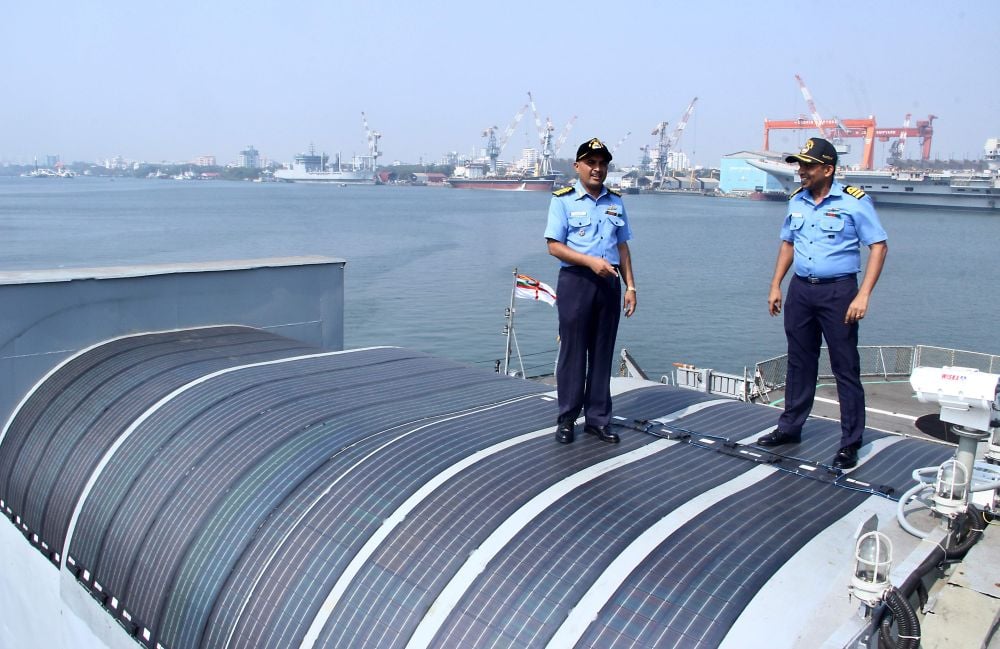Indian Navy’s survey vessel INS Sarvekshak became the first naval ship to go green by installing a solar power system on board. The ship is based at the Southern Naval Command, Kochi.
With this, INS Sarvekshak is the first ship in the world to use solar energy on board. The flexible lightweight panels were imported from the US.
About this development aboard INS Sarvekshak:
- It has innovatively deployed the zero-maintenance solar power system, capable of generating 5.4KW electricity and replacing the ship’s traditional 4.4KW emergency diesel alternator.
- It has light weight, extra-thin and flexible unbreakable solar panels imported from the US along with no-fume solid electrolyte batteries. They are found to be performing well in all light conditions and are shade-tolerant.
Imported Flexible solar panels aboard INS Sarvekshak - The solar power generating system has been installed by customising and installing ‘razor-thin, flexible’ solar panels on the canopy of its telescopic (retractable) helicopter deck.
- The flexible panels can be installed in any place where sunlight is available. It requires a 1 sq. metre panel to produce 100 watts of electricity.
- They also have a maintenance free life for 24 years making it maintenance free. The system is 100% reliable for a power source that can be used for communication equipment, general lightings onboard and battery charging round-the-clock with battery outputs during night.
- The system installation cost was about ₹19 lakh, and the generation cost is ₹12 per KW/hour. The remaining energy, after consumption, is stored in batteries
- Comparing this with the existing diesel generator, which consumes one litre of diesel to generate five units of electricity, the estimated savings in 15 years of service life is approximately ₹1 crore and after 25 years is ₹2.7 crore.
- Also unlike the existing diesel generator that produces 165 kg of carbon gases daily, the new system is environment-friendly.
Solar power in a marine environment is a great challenge. The world is looking for clean, renewable and sustainable sources of energy in order to protect and reduce the harm caused to the environment.














